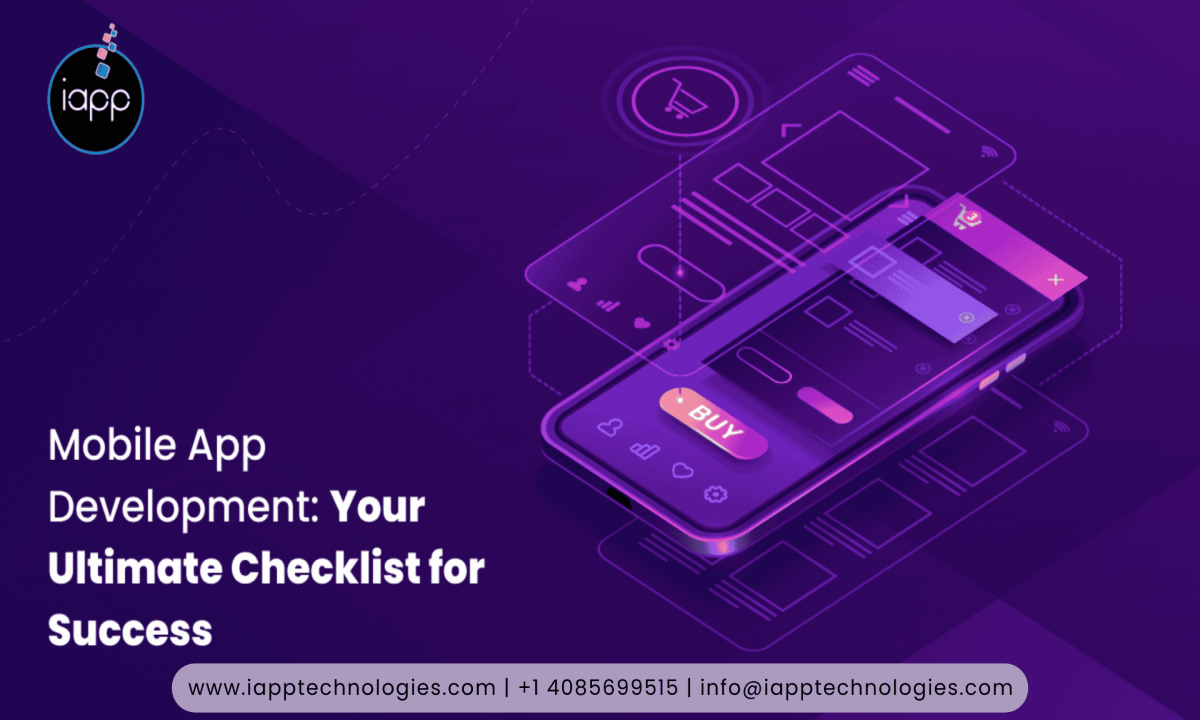


So, you want to build a mobile app? Exciting! But let’s be real, it’s not just about coding an idea and throwing it into the app store. There’s a whole journey between “I’ve got an idea” and “people love using my app”. At iApp Technologies, we’ve seen the good, the bad, and everything in between when it comes to apps. And the truth is, mobile app development isn’t scary if you break it down into practical steps.
Here’s a roadmap well, more like a conversation about what you should keep in mind.
Every great app starts with one thing: a purpose. Not “because everyone has an app” but “because it solves a problem”. Think about who you’re building for. A fitness app for busy parents will look very different from a shopping app for teens. If you don’t nail this step, everything else feels shaky.
And honestly? This is the part most people rush through. Don’t.
You wouldn’t open a restaurant without checking what other restaurants are serving, right? Same with apps. Check out competitors, scroll through app store reviews, and maybe even ask potential users what frustrates them about current apps. That’s your goldmine.
Market research doesn’t have to be boring it’s just listening, observing, and finding out what’s missing.
“I just want people to use it” isn’t a goal. Be specific. Do you want 5,000 downloads in the first month? Do you want customers to spend more time with your brand? Goals give you something to measure against. Otherwise, you’ll never know if your app is doing its job.
Design can make or break an app. It’s not just about colours and icons it’s about flow. Mobile app design is where you make life easy (or frustrating) for your users.
Keep things simple. Test early versions with actual people and watch how they use it. Where do they get stuck? Where do they smile? That feedback is better than any design theory.
This question always comes up: do I start with Android app development or iPhone app development? The answer depends on your audience.
Android gets you reach it’s huge worldwide.
iPhone usually brings users who spend more and expect a polished feel.
If you can, go for both. If not, start where your audience lives.
Apps that feel cold and mechanical? Forgettable. Apps with a bit of personality? People remember them. That’s where visuals, animations, and little touches come in. You don’t need to go overboard, but adding some life to your app keeps users around longer.
Okay, the technical bit. You’ll hear about “native”, “hybrid”, or “cross-platform”. Here’s the thing: there’s no universal “best”. Native apps run buttery smooth but cost more. Cross-platform saves money but can feel a bit limited if you want something complex. Pick what matches your goals, budget, and timeline.
And please write clean code. Messy code might work at first, but it’ll bite you later when updates roll out.
Here’s where a lot of people cut corners. Don’t. Testing is where you catch those small bugs that annoy users into deleting your app. Try it on old phones, new phones, tablets, and slow internet you’ll be surprised what shows up.
Congrats, your app’s live! But here’s the truth: launch day isn’t the finish line it’s the start of a whole new phase.
You’ll need to market it. Social media, email, app store optimization it all matters. Then you’ll need to track how people actually use it. Analytics will show you what they love, what they ignore, and where they drop off.
And finally, updates. Apps that get updated regularly earn trust. Apps that go silent? People move on.
The bottom line: even mobile app experts stick to the basics. Know your audience, design for them, build smart, test hard, and never stop improving.
With years of expertise as a mobile app development company, we ensure every app delivers a seamless experience that users love and return to. Contact iApp Technologies to turn your vision into reality.
1. How long does it take to build a mobile app?
It depends on features and complexity. A simple app might take 2–3 months, while a more advanced one can take 6–9 months or more.
2. Should I start with Android or iPhone first?
It really depends on your audience. If most of your users are on Android, start there. If you’re targeting a premium market, iPhone may be a better choice.
3. How much does mobile app development cost?
Costs vary based on design, features, and platform. It’s always best to discuss your idea with experts to get an accurate estimate.
4. Do I need to update my app regularly?
Yes! Regular updates improve performance, fix bugs, and keep users engaged.
5. Why should I hire professionals for app development?
Because professionals bring experience in mobile app development, design, and testing, ensuring your app actually works well and attracts users.
How AI in Fintech App Development is Transforming Digital Payments
How Much Does It Cost to Build an E-commerce Mobile App Like Amazon?
Future of Ride Hailing with AI Taxi Booking Apps
10 AI Business Ideas That Are Actually Profitable in 2026
 Jagwinder Singh
Jagwinder Singh